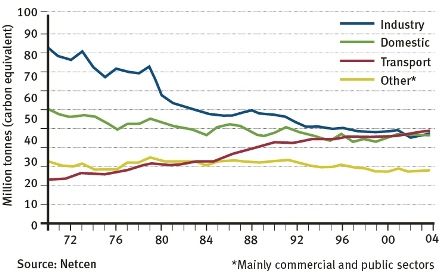Gordon Brown recently said: “rich countries must significantly cut greenhouse gases as we move to putting the world on the path to halving global emissions”. Across business, industry and government, organisations are beginning to see the importance of this from both an ethical and business standpoint.
Over the past year, Steer Davies Gleave has encountered unprecedented interest from clients wanting to better understand the contribution of their travel to climate change and what they can do to reduce this. Here, climate change expert Chris Ferrary discusses some of the reasons for this, and why it seems there’s no going back.
Gordon Brown recently said: “rich countries must significantly cut greenhouse gases as we move to putting the world on the path to halving global emissions”. Across business, industry and government, organisations are beginning to see the importance of this from both an ethical and business standpoint.
However, the transport sector has been relatively slow to respond. In 2004, CO2 emissions from the UK overall were almost 20% lower than in 1970, and emissions from industry were almost half what they had been. Much of this was due to economic restructuring, but many process industries made great strides in energy efficiency and emissions reduction over this time.
By contrast, even excluding aviation, CO2 emissions from transport doubled over the same period, as illustrated below:
Even now, transport is the only sector of the UK economy where carbon emissions continue to grow, and are projected still to be higher in 2020 than they were in 1990. Therefore, transport policy has to have a key role in combating dangerous trends in climate change and is critical to the long-term goal of reducing carbon emissions.
Tackling transport emissions is especially challenging because of our absolute dependence on fossil fuels to move ourselves and our goods around: 99% of all UK transport uses oil products, accounting for 74% of total consumption.
Although use of alternative fuels is increasing, we start from a very low base. There are also profound difficulties in finding alternatives to oil in aviation, shipping and long distance road transport. 95% of all goods in the shops currently arrive there using oil, making it difficult to decouple CO2 emissions in the transport sector from economic growth.
There is a growing realisation of the depth of this problem and there seems to be a real appetite to address it, but new approaches are needed. Steer Davies Gleave is developing ways to deal better with this problem based on the following framework.
Understand the problem: All too often, policy-makers simply don’t know what the carbon impacts of the proposals they put forward are, and this has to be the starting point for managing and reducing emissions.
Identify targets/budgets for carbon from transport and the responses required to meet them: We also need to know what we are aiming for. Developing ‘carbon-friendly’ policies first typically ends up with a package of measures which is simply ‘too little, too late’.
Understand the limits of technology: Fuel efficiency and alternative fuels can help, but are not the panacea some would have us believe. A realistic view of what they can do is needed, as well as a clear vision of what else is required to combat the problem.
Understand the role of behaviour change: Still the ‘Cinderella’ of transport planning, there is increasing evidence that personal travel planning can be at least as important, if not more, that technology in reducing emissions.
Implementing and selling the policies: Policies have to be packaged and sold to politicians and the public alike in terms of what needs to be done to avoid climate change catastrophe, and stressing that lifestyles need not necessarily be forsaken.
Measuring and monitoring: We also have to be able to demonstrate that the policies we choose are working, and that we are actively moving towards meeting the targets that are set.
